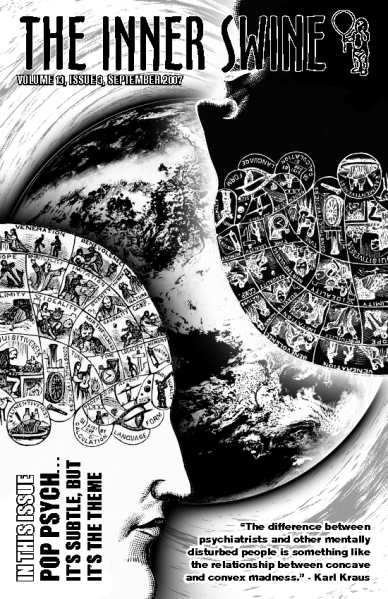One of the hardest lessons for any author is that getting a book published is only half the job. Or one-fourth of the job—you have to write the damn thing first, and then revise and perfect it, and then get it published. And once you’ve got it out there, you have to promote it.
Different writers will approach promotion differently. You might concentrate on social media, or you might make videos, or you might go to cons and other events in order to meet real, live people and try to hand-sell them some books. I’ve done cons before—ComicCon and the Writer’s Digest Annual Conference, for two—and this month I found myself at Book Expo America and BookCon at the Javits Center in New York City. My publisher, Writer’s Digest Books, asked me to stop in and do some book signings, and it reminded me of a few book promotion lessons I’ve learned at these things.
Be Prepared
Be prepared for two things at these sorts of events: One, the sheer scale of it—there will be a lot of people, most of whom have no idea who you are. Two, the psychology of it. Unless you’re super famous, chances are no one will have heard of you, and you have to be ready for the vaguely interested looks and the blunt questions about why anyone should care about your book.
Be Active
If you’re not famous, don’t assume people will just be drawn to your booth by the sheer animal magnetism of your talent, charm, and fashion sense. Get crowd wranglers out there—people who will walk around with your book and go up to folks and say “Hey, want a free signed copy? This guy’s awesome and he’s right over there!” No need to get fancy about this—trickery, like having folks pretend to be just plain old fans, won’t work. But wrangling the crowd is the difference between sitting alone, silently crying, and having a robust line of people.
Have Fun
Probably the most-forgotten bit of advice is to always have fun when promoting your book. Enjoying what you’re doing will make other people enjoy it as well—and the opposite applies, believe me. If you force yourself to deal with crowds despite wanting to vomit at the thought of it, that flopsweat is going to be obvious to everyone and they will run away. Stick to whatever it is you enjoy. Me, while meeting 200 people in half an hour is a bit stressful I do kind of enjoy bantering with people. I like the folks who challenge me—they walk up and say, why should I read this? Or, what’s your favorite part of the book? I like the glint in their eye as they challenge me to prove to them that it’s worthwhile.
But not everyone enjoys that. If you don’t, don’t force it.
Have Merch
It’s a basic thing, but it’s essential: Have bookmarks, or business cards, or candy, or something to give people with your name and website on it. Like I said, a great majority of these people don’t know you and are only barely interested. Slipping a bookmark into the book you just signed could be the difference between them forgetting all about you and remembering something you said a month later when they’re in their local bookstore.
Also: Be prepared for awkward conversations. There will be many of them.
BookCon was a blast. We gave away ~200 copies of Writing Without Rules, I met a bunch of cool people, saw some old friends, and got to meet people from my publisher I’d only emailed with before. Plus the sheer scale of the event and the energy in the air was incredible. And I managed to keep my pants on the whole time, which surprised more than one person, let me tell you.








